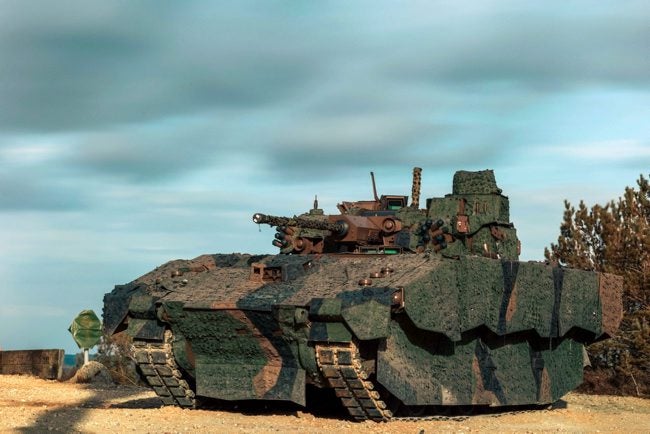The Ministry of Defence has a long history of wasting taxpayers’ money
While Britain may boast one of the most professional and brave armed forces in the world, they seem to be lions equipped by donkeys, writes Sean O’Grady


The Public Accounts Committee of the House of Commons is the oldest and most prestigious of the many select committees. It can trace its lineage back to 1862 and was the brainchild of WE Gladstone. The Grand Old Man of British politics bequeathed a grand old committee, whose close work with the National Audit Office and formidable reputation have exposed official idiocy and waste of all kinds.
Unfortunately, one of the most frequent subjects of the PAC’s attentions had been incompetence by the Ministry of Defence in its procurement programmes. The latest PAC report is as damning as any in its verdict on recent activities by the MoD, most notably the failure after almost two decades and some £5.5bn to develop and deploy a new “family” of light-armoured vehicles and smaller tanks, latterly known as the Ajax programme. Despite all the delays and all the resources devoted to it, not a single vehicle has been put into continuous service, and there is no date for when this might even happen.
It is part of a long pattern of failures on the part of the MoD and its suppliers. As the PAC states: “There have been numerous reviews of defence procurement over the past 35 years, which have provided the department with opportunities to take stock and learn from experience. We are therefore extremely disappointed and frustrated by the continued poor track record of the department and its suppliers – including significant net delays of 21 years across the programmes most recently examined by the National Audit Office – and by wastage of taxpayers’ money running into the billions.”
While Britain may boast the most professional and brave armed forces in the world, to borrow a phrase, they seem to be lions equipped with donkeys, and historically so. Indeed the examples of success on procurement are almost the exception to the rule. The recent new Queen Elizabeth-class aircraft carriers being an outstanding success, and the Hawker Harrier “jump jet” a half century ago another world-beating design. Flops have been more frequent. Historically, they fall into two or three categories. First are the projects that get delivered on time and at budget, more or less, but which are underdeveloped and/or unreliable in service. These would include, for example, the Churchill tank in the Second World War, the amphibious Alvis Stalwart personnel carrier in the 1960s, the SA80 rifle in the 1980s, and, most recently the failing engines on the navy’s Type 45 destroyers – apparently unable to cope with the warmer waters around the Gulf of Arabia.
The other category of failure is where the equipment takes so long and costs too much to develop that it barely gets as far as entering service, such as the long-running Nimrod AEW3 early warning plane, binned in 1986 after a £1bn spend (about £4bn in today’s money) and a gestation of some 20 years. It is possible that the Ajax military vehicles may fare the fate of the Nimrod, given that they are so noisy and vibrate so much they do more damage to those inside them than to the enemy. It was rumoured, among other things, that they could not reverse over an object higher than 20cm, something a £17,000 Suzuki Jimny could conquer in its stride.
Nor is the Ajax alone. In almost every branch of defence procurement the PAC detects problems: the A400M transport plane; the Warrior armoured vehicle upgrade; Marshall air traffic management; Crowsnest naval radar and Spearfish torpedo are also in difficulty.
The point about all the historical failures is precisely that the same mistakes are repeated again and again. The PAC says that, until very recently, the MoD had no formal “learning for experience” function. As in the past, often the UK has attempted its own bespoke solutions rather than buy “off the peg” kit from allies, especially the US, and has suffered from lack of transparency and accountability. The PAC concludes: “The department is in a disadvantageous position because it relies on a limited specialist supplier base to meet its needs and at times lacks the skilled personnel to effectively manage the performance of these suppliers. Overall, we are very concerned that the department – and ultimately the taxpayer – bears too much of the financial risks for failure.”
Sadly, ’twas always thus.



Join our commenting forum
Join thought-provoking conversations, follow other Independent readers and see their replies
0Comments